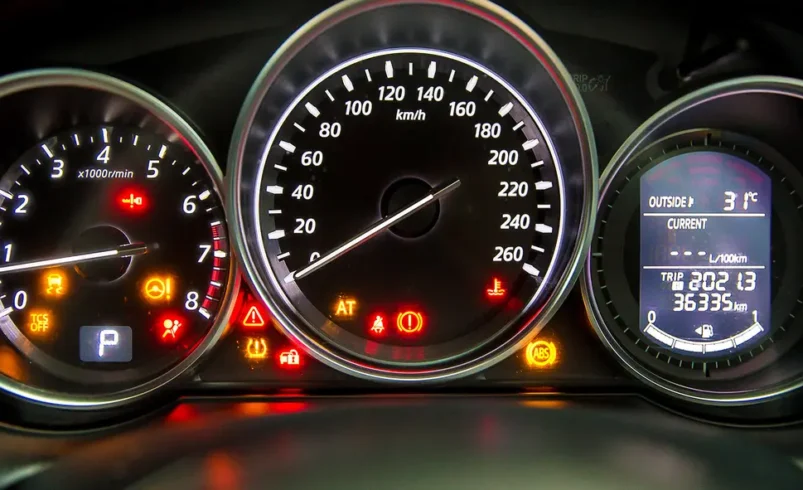How the IRS Mileage Rate for 2025 Will Affect Small Business Owners

As small business owners gear up for the upcoming year, one of the key tax considerations will be the IRS mileage rate for 2025. This annual adjustment by the Internal Revenue Service (IRS) can have significant financial implications for businesses that rely on vehicles for operations, such as delivery services, contractors, and other businesses that require frequent travel. Understanding the changes to the IRS mileage rate and how to optimize mileage deductions is crucial for minimizing tax liabilities and maximizing savings in 2025.
This article will explore how the 2025 mileage rate will affect small business owners, including potential changes to the rate, how to track and claim mileage deductions, and best practices for leveraging these deductions to reduce taxable income. We’ll also look at tools like Everlance that can help streamline mileage tracking and ensure compliance with IRS requirements.
What is the IRS Mileage Rate and Why is it Important?
The IRS mileage rate is the standard amount that business owners can deduct for each mile driven for business purposes. This rate is reviewed and adjusted annually by the IRS based on various factors, including fuel prices, vehicle maintenance costs, and overall inflation. Small business owners who use their personal vehicles for business activities—whether for client visits, deliveries, or other work-related travel—can claim deductions based on the IRS mileage rate.
For 2025, small business owners need to stay informed about any changes to the mileage rate. A higher rate could mean larger deductions, directly reducing your business’s taxable income. Conversely, a lower rate might limit the deductions you can claim for business-related vehicle expenses.
In addition to the standard mileage rate, the IRS also allows deductions for certain vehicle expenses like maintenance, repairs, and insurance. However, claiming the standard mileage rate is often simpler and more straightforward for many small business owners.
What Will Change with the IRS Mileage Rate for 2025?
The IRS reviews and adjusts the mileage rate each year, factoring in the rising costs of gasoline, vehicle depreciation, and other related expenses. The rate for 2025 has yet to be finalized, but there are several factors that could influence its adjustment.
Fuel Prices and Inflation
A major driver of the mileage rate change is fuel prices. If gas prices continue to rise, the IRS may increase the mileage rate to help businesses offset these additional costs. Inflation also plays a role, as it impacts vehicle maintenance and depreciation expenses, which the mileage rate is designed to cover.
Increased Operational Costs
With increasing vehicle repair and maintenance costs, the IRS may adjust the mileage rate upward to account for these changes. Small business owners who operate fleets of vehicles or rely on personal cars for business purposes may benefit from an increase in the mileage rate, as it would help offset these higher operating costs.
Environmental Considerations
Another potential factor in the IRS’s decision-making process is the increasing focus on sustainability and environmental regulations. If the IRS adjusts its mileage rates to promote eco-friendly driving behaviors or to account for the growing popularity of electric vehicles (EVs), it could result in slightly different rates for electric vs. traditional gasoline-powered vehicles. These kinds of changes could impact small businesses that are transitioning to EVs or are considering electric vehicle options for their fleets.
How Small Business Owners Can Prepare for the 2025 IRS Mileage Rate
No matter what the new IRS mileage rate for 2025 turns out to be, small business owners can take several steps to ensure they are prepared to maximize deductions and stay compliant.
1. Accurate Mileage Tracking
First and foremost, small business owners must ensure that their mileage tracking is precise and consistent. The IRS requires detailed records to substantiate any mileage deductions, and an audit could result in the disallowance of any deductions if proper documentation is not maintained.
To simplify this process, many small business owners turn to mileage tracking tools like Everlance. These apps automatically track and log each trip, categorize it as business or personal, and calculate the mileage based on GPS data. With Everlance, you can generate reports for tax purposes, ensuring that your mileage records are accurate and audit-ready.
2. Categorizing Business vs. Personal Miles
Not all miles driven in a business vehicle are deductible. For example, commuting from home to a regular office is considered personal mileage and is not deductible. To avoid mistakes, it’s important to clearly differentiate between business and personal miles. With Everlance, you can easily categorize each trip, ensuring that only business-related miles are tracked and reported for deductions.
3. Claiming Other Vehicle Expenses
While the mileage rate often covers the bulk of your vehicle-related expenses, there are additional costs that can also be deducted, such as fuel, parking, tolls, and repairs. Small business owners should keep detailed receipts and records of these expenses to supplement their mileage deductions.
4. Maximizing Your Deductions
Small business owners should also be aware of other tax strategies that can maximize their overall deductions. For example, if your business uses multiple vehicles, keeping track of each vehicle’s mileage and expenses separately can help you claim more deductions. Additionally, if your business is growing and you purchase new vehicles, keeping detailed records of depreciation expenses and capital costs can further reduce taxable income.
5. Review IRS Guidelines Regularly
Tax laws and IRS guidelines can change, so it’s important for small business owners to stay up-to-date with any adjustments to mileage deduction rules. The IRS typically releases information about the new mileage rate in December or early January, and small business owners should review these updates to ensure they are applying the correct rate when filing their taxes.
How Everlance Helps Small Business Owners
As a small business owner, managing your vehicle expenses can be a time-consuming task, but with the right tools, it doesn’t have to be. Everlance is a mileage tracking app that simplifies the process of tracking your business miles, generating reports, and staying compliant with IRS requirements.
Everlance automatically detects trips, categorizes them, and calculates the exact mileage based on GPS data. This means small business owners can rest assured that every mile is tracked accurately, and every deduction is claimed correctly. The app also provides detailed reports that can be easily exported for tax filing purposes, making it an indispensable tool for small businesses that rely on vehicles.
Additionally, Everlance offers features that help business owners separate personal and business expenses, ensuring that only eligible mileage is counted towards deductions. Whether you use one car or manage a fleet of vehicles, Everlance helps streamline the entire process, saving you time and money during tax season.
Conclusion
The IRS mileage rate for 2025 will undoubtedly have an impact on small business owners who rely on vehicles for daily operations. By staying informed about changes to the mileage rate and utilizing tools like Everlance to track business miles accurately, small business owners can maximize their tax deductions, reduce taxable income, and stay audit-ready. Being proactive about mileage tracking and understanding the financial impact of the IRS’s mileage rate changes can make a significant difference in your business’s bottom line.
Preparing for 2025 starts today. Keep your mileage records organized, stay up-to-date with IRS guidelines, and take advantage of technology to ensure your vehicle-related expenses are optimized for maximum deductions.






